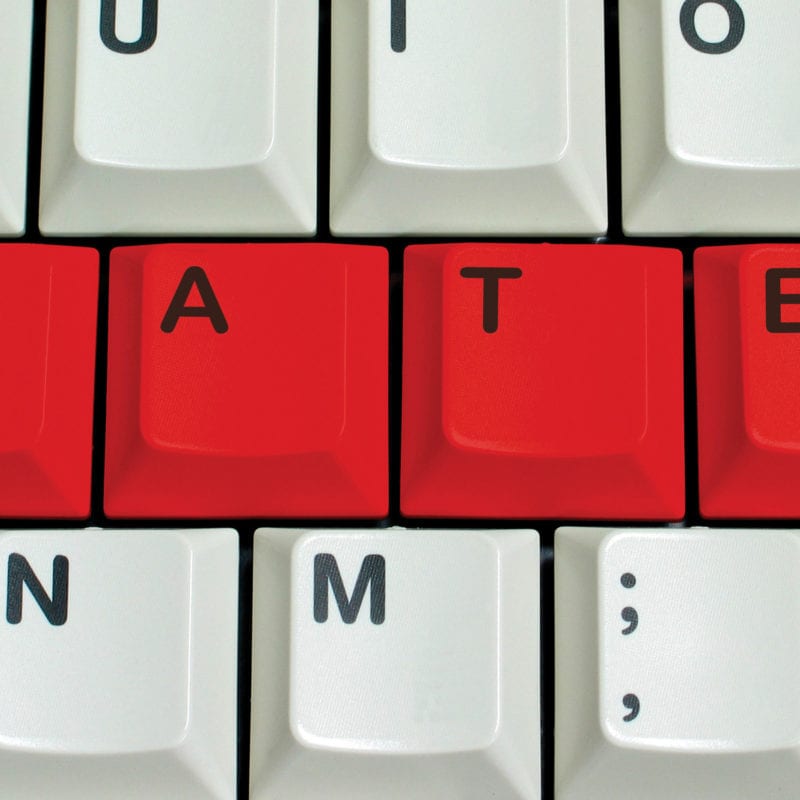
How can one word evoke entirely opposite concepts depending on who’s using it?
Hindutva is a combination of two words, ‘Hindu’ and the Sanskrit word tattva (‘thatness’ or ‘essence’).
Based on this, Hindutva is popularly translated as ‘Hindu-ness’ and a good many Hindus simply think of Hindutva as the idea and practice of living a life according to Hindu teachings or even just a descriptor of being Hindu. Others see it as an imminent global threat to freedom, equality, and democracy.
As the public outcry from Hindus around the world about the recent Dismantling Global Hindutva conference made clear, Hindutva is a term that 1) doesn’t have one accepted definition or reference point; and 2) is weaponized by activists and scholar-activists to negatively stereotype and marginalize Hindus, especially in the diaspora.
The Supreme Court of India defines the term thusly: “Hindutva is understood as a way of life of state of mind and is not to be equated with or understood as religious Hindu fundamentalism…it is a fallacy and error of law to proceed on the assumption…that the use of words Hindutva or Hinduism per se depicts an attitude hostile to all persons practicing any religion other than the Hindu religion.”
The leader of the Rashtriya Swayamsevak Sangh (RSS), often described as the fountainhead of Hindutva as an ideology, says, “Hindutva is one that takes everyone along, brings everyone together, unites everyone within itself, and makes everyone prosper.” Another organization, the World Hindu Council of America, also associated with Hindutva, defines the term as the essence of Hindu dharma — illustrating this essence with Sanskrit maxims proclaiming the unity of all beings, how Hinduism recognizes a diversity of perspectives on the Divine, and how Hindu ideals accept everyone, regardless of gender, race, religion, ethnicity, and national origin. Many Hindus, especially on social media, have adopted the tag line of “Hindutva is Hinduism that resists,” alluding to an increasing number of Hindus speaking out on issues ranging from how Hinduism is talked about in civic spaces to advocating for the civil and human rights of Hindus.
Going back to the oft-described father of Hindutva, VD Savarkar wrote that Hindutva is more expansive than the religious aspects of Hinduism, encompassing the cultural, linguistic, political, and social aspect of the Hindu people — which he thought of as those people living within the historical boundaries of India, not strictly those who we’d describe as Hindus today. He also specifically said, writing prior to India gaining its independence from Britain, that “All citizens [of an independent India] should have equal rights and obligations irrespective of caste or creed, race or religion… The fundamental rights of liberty of speech, liberty of conscience, of worship, of association, etc., will be enjoyed by all citizens alike.”
On the other end of the spectrum are those individuals and organizations that clearly see Hindutva as an irredeemably negative concept. They, like the organizers and allies of the Dismantling Global Hindutva (DGH) conference, see Hindutva and its supporters as insidiously dangerous.
Supporters of Hindutva, according to this camp, include the Bharatiya Janata Party (a democratically elected party in India), the RSS, and other self-identifying Hindutva groups. But increasingly so, this camp uses the term exclusively as a slur against ordinary Hindus not only in India, but the global diaspora. Hindus advocating for human rights, pushing against problems like Hinduphobia and entrenched stereotypes, or even running for elected office, are also labeled as Hindutva, aka “Hindu fascists” or “Hindu supremacists,” regardless of their actual beliefs or actions or the fact that they are micro-minorities in places like the United States.
The DGH organizers quote their own Hindutva Harassment “Field Manual” as an authority on the subject: “Hindutva is a modern political ideology that advocates for Hindu supremacy and seeks to transform India, constitutionally a secular state, into an ethno-religious nation known as the Hindu Rashtra (Hindu nation).” At the same time, DGH sends a contradictory and rather alarming message. While pre-conference resources attempted to make a distinction between Hindutva and Hinduism, speakers at the conference insisted that Hindutva and Hinduism are inextricably linked. It’s no wonder then that Hindus around the globe cried foul over what would then be an effort to dismantle Hinduism by demonizing and dehumanizing Hindus.
The Medium account StopHindutva also takes a purely negative, equally dystopian view — as one might guess from the name — describing Hindutva as “Hindu fascism” that “is a majoritarian and far-right ethnonationalist movement that uses religion as a justification for atrocities against Dalits, Muslims, Christians, Sikhs, Ravidassias, and Buddhists.”
So which of these definitions is the most accurate one?
Is it a gap between lofty rhetoric and a purportedly grotesque reality that has caused such widely divergent views on the same word? Or is some other factor or factors at play such as politics in India, plain anti-Hindu bigotry, or the broadly human failing to judge an entire group of people by the actions of the worst amongst them and not the best?
Nowadays, words are easy to weaponize, people are easy to label, and misinformation is easy to spread. We consume information and form opinions from 30 second clips or 280 characters with little regard to context and perspective. “Hindutva” is not a word we use at the Hindu American Foundation to describe our work, nor one we engage with politically or ideologically. We acknowledge its multiple meanings and condemn the weaponizing of it.
We pride ourselves on thoroughly researching topics and coming to collective stances that are balanced and measured. Our viewpoints are grounded in Hindu values such as objectivity, truthfulness, discernment, and minimizing harm. We do not base our work on political or dogmatic ideologies.
We recognize there is good in all of us, even those who actively work to discredit us. As such, our channels are always open to have meaningful debate and discussion so that we can all move forward in a positive and constructive manner.








































